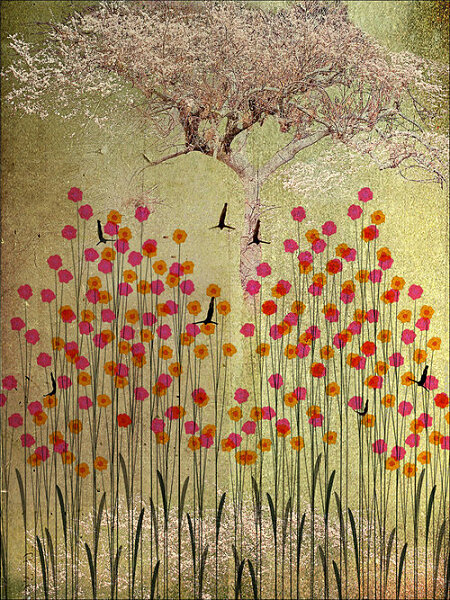
Bedwetter
That first time at the creek, when the old man locked me out of the house, I wandered past the squishy mud bath to the swimming hole, and it made me weak with horror. The still water with no visible bottom looked like a dark well, or an unblinking abyss, and I knew that monsters lurked beneath the water. Later, when the old man tossed me off his shoulders before I knew how to swim, I sank a thousand leagues beneath the surface, and the only thing I could see in the muddy water was my old man’s legs, surrounded by a hoard of nibbling minnows. They swarmed over me, too, and I lost consciousness in a slippery sea of silver. When I woke, the old man was kneeling over me, shaking me, telling me that if I ever told anyone anything I would die. Pulling a joint from between her lips, Ma said, Christ, let her breathe. But she knew there was no changing his nature.
I guess I always knew my father was going to kill me. He was my end, certain as the tide. It was the same for Ma. Leaning over the sink with the blood running from her nose and an ice pack to her swollen eye, she must have known the old man would kill her. It was a clear night when he finally did, but the next day the Big Flood cleared away the dirt under which he’d buried her, cocooning her under the bridge in an earthen tomb. He’d patted mud around her body with his brutal palms, encasing her like a mud dauber in her own organ-pipe grave. The flood is supposed to wash away sinners, right? But it had just made her blue all over, torn her skin away in a torrential rain. Made the blood on the old man’s face run from his forehead down his cheek to his chin.
When he held me under the water, I thought about his legs surrounded by minnows, about drowning, and surviving only because he pulled me out of the water. I used to look at him across the dinner table sometimes, watch him eat, wonder why he hadn’t just let me die that day. And I wondered why the black widow hadn’t bitten him. Did it sense a kindred spirit, a destructive nature? I thought about the scorpion and the frog, and I wondered why the frog didn’t strike back. I took a rock from the bottom of the creek and stabbed it against his hands underwater, drawing a fog of blood into the muddy water, and when he let go of me I rose and swung it around at his skull with a vengeance. For a few minutes, he sat on the bank, knees to his chest, dazed. I sat with him, rock in hand.
I used to catch frogs at the creek for Ma. Inevitably, I’d drop them in disgust before reaching her at the house because the frogs would pee on my cupped palms. Defense mechanism, Ma explained when I ran inside to wash my hands. They were bedwetters.
The police found us like that, my old man and me, on the banks of the creek, looking at each other like two corpses. I think of the scorpion, who doomed himself by killing the frog, who rests on the bottom of a rocky riverbed with his questioning victim. Why? It’s my nature. So they sit, looking at each other in stubborn certainty, with minnows swarming in streaking flashes of silver, waterbugs casting spindly shadows from the rippling surface above.
